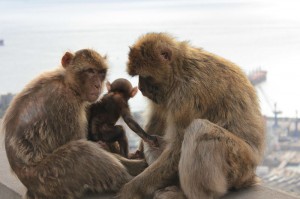Two new competing studies disagree on the origins of monogamy but both agree it had nothing to do with romance.
Researchers at Cambridge University found social monogamy originated as a male mating strategy which evolved over the years. Males pushed for monogamous relationships after finding themselves in situations where females lived far apart from each other or there was a lack of potential female mates, leaving the male unable to dominate and defend multiple mates.
“Where females are widely dispersed, the best strategy for a male is to stick with one female, defend her, and make sure that he sires all her offspring.” said Tim Clutton-Brock, a Cambridge researcher involved with the study. “In short, a male’s best strategy is to be monogamous.”
The other study, led by the University College London, finds the basis for monogamy to be rooted in the male need to protect its offspring from unrelated males.
This team also found that males not only protected their children, but also took on the role of caregiver, sharing childcare tasks with the female, after the idea of monogamy began to take hold.
“This is the first time that the theories for the evolution of monogamy have been systematically tested, conclusively showing that infanticide is the driver of monogamy,” said Dr Kit Opie, from the University College of London who served as lead author of the study. “This brings to a close the long running debate about the origin of monogamy in primates.”
The caregiving aspect of the UCL study, say the researchers, became a necessity for primates in particular because they were evolving into creatures that developed much bigger brains than other mammalian species.
Growing a big brain meant offspring matured more slowly. With most other animal species, children were left to fend for themselves soon after birth. In primate species, a prolonged childhood required that both mom and dad be involved with taking care of the offspring, according to the UCL researchers.
They say this may also explain how large brains were able to evolve in humans.























Comments are closed.